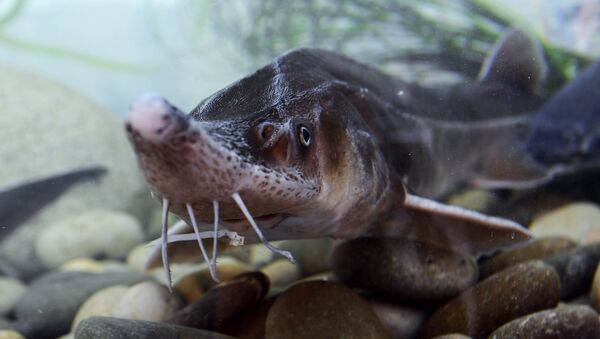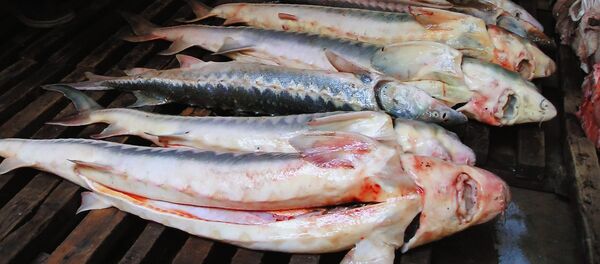ASTRAKHAN (Sputnik), Anastasia Levchenko — Russia will face international condemnation and multi-million dollar fines under the Ramsar Convention if no action is taken by Astrakhan authorities to halt the extinction of the sturgeon, a former criminal investigator at the Russian Investigative Committee told Sputnik Thursday.
The Ramsar Convention, or the Convention on Wetlands of International Importance, especially Waterfowl Habitat, signed in 1971 in Ramsar, Iran, is an international environmental treaty signed by 168 states, including Russia, to, among other key points, conserve species and sustain wetlands.
"Unfortunately, local authorities [in the Astrakhan Region, sturgeon habitat] do not pay attention to this legislation, simply because they do not know this treaty. But given the current ecological and political situation, if tomorrow sturgeons disappear, we will face many international accusations and multi-million fines," Andrei Degterev, former criminal investigator and one of Russia's leading specialists on the legality of sturgeon species preservation, told Sputnik.
Rivers in Russia's Siberia and Caspian Sea regions, where the fish travel to spawn, are primary sturgeon habitat areas.
Species preservation is made even more difficult as Caspian littoral states are unwilling to provide scientists access to the sturgeon ecosystem for species population research, Degterev said.
"How can we preserve sturgeons, if we do not know how many there are?" Degterev said.
Russia banned commercial fishing of the sturgeon in 2002 and called on other Caspian littoral states to impose their own moratoriums. The states refused to sign a formal agreement on a commercial sturgeon fishing moratorium, but offered a non-binding recommendation suggesting a moratorium last year at a summit of a commission for marine living resources of the Caspian Sea.
According to Degterev, high profits for both fishermen and product distributors, coupled with a traditional popular desire for the fish, has created a lack of political will by leaders of the Caspian littoral states for any formal, binding moratorium.
Degterev also stressed that Russia must introduce stricter punishment for sturgeon poaching and work more aggressively to preserve the species population.
"Russia should first of all amend article 256 of the Criminal Code [of the Russian Federation]. We cannot fight with criminal groups just because the crime of illegal fishing [under article 256] is a minor offense," Andrei Degterev told Sputnik.
The problem of disproportionate fishery legislation must be brought to the State Duma, the lower chamber of the Russian parliament, according to Degterev.
"No one would go fishing in the river if he knows he can get 10 years in prison for it," Degterev, Russia's leading specialist on the legal aspects sturgeon preservation, said.
In 2014, during a summit of the five Caspian states in Astrakhan, Russia's President Vladimir Putin announced that some 8.5 billion Roubles ($170 million) would be allocated for supporting the growth of the sturgeon population in the wild. However, money was siphoned off by officials, Degterev stated.
Insufficient legislation is not the only reason why the sturgeon is on the verge of extinction. Lack of cooperation on the issue between the Caspian littoral states, widespread poaching and water pollution caused by oil exploration, especially the fracking process, contribute greatly to species decline.





